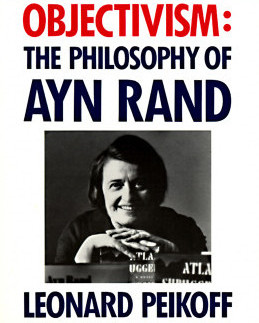At this stage, I want merely to dissociate Ayn Rand’s approach from the subjectivist idea of dealing with others. Egoism, in the Objectivist interpretation, does not mean the policy of violating the rights, moral or political, of others in order to satisfy one’s own needs or desires. It does not mean the policy of a brute, a con man, or a beggar. It does not mean the policy of turning other men, whether by clubs or tears, into one’s servants. Any such policy, as we will see in due course, is destructive not only to the victim, but also to the perpetrator. It is condemned as immoral, therefore, by the very principle of selfishness.
The best formulation of the Objectivist view in this issue is the oath taken by John Galt, the hero of Atlas Shrugged. “I swear — by my life and my love of it — that I will never live for the sake of another man, nor ask another man to live for mine.” The principle embodied in this oath is that human sacrifice is evil no matter who its beneficiary is, whether you sacrifice yourself to others or others to yourself. Man — every man — is an end in himself.
If a person rejects this principle, it makes little difference which of its negations he adopts — whether he says “Sacrifice yourself to others” (the ethics of altruism) or “Sacrifice others to yourself” (the subjectivist version of egoism). In either case, he holds that human existence requires martyrs; that some men are mere means to the ends of others; that somebody’s throat must be cut. The only question then is: your life for their sake or theirs for yours? This question does not represent a dispute about a moral principle. It is nothing but a haggling over victims by two camps who share the same principle.
Objectivism does not share it. We hold that man’s life is incompatible with sacrifice — with sacrifice as such, of anybody to anybody. We reject both the above theories on the same ground. As Ayn Rand states the point in The Fountainhead, the rational man rejects masochism and sadism, submission and domination, the making of sacrifices and the collecting of them. What he upholds and creates is…
